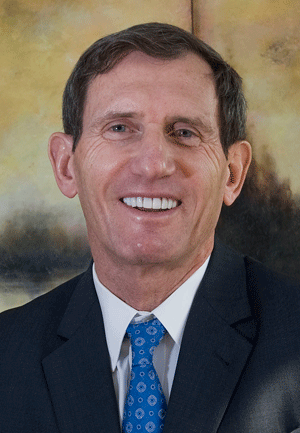The 2012-13 auditor general’s report shows an attractive market has opened up for lawyers who now do a chunk of the dispute resolution work for the Financial Services Commission of Ontario, but their peers in the personal injury bar are still unhappy with the timelines for arbitration once the mediation process fails.

In her report last week, auditor general Bonnie Lysyk noted that two years ago, the province approved FSCO’s request for an additional $38.2 million over three years to hire outside alternative dispute resolution services to supplement the work performed by its own staff. At the time, the FSCO system was suffering from a severe mediation backlog issue that frustrated lawyers and their clients.
Now, with help from ADR Chambers, Lysyk noted “the backlog had been eliminated.”
“According to FSCO, backlogged mediation cases were being assigned to the service provider at the rate of 2,000 files per month. New applications received on or after November 29, 2012, were being assigned to FSCO mediators within a couple of days,” according to Lysyk.
There were 29,000 cases waiting for assignment in March 2012, she noted. But as of August 2013 “all mediation files had been assigned . . . and the backlog had been eliminated.”
Personal injury lawyers say they can now get mediation dates three months after they apply, a massive improvement from a year-long wait a few years ago.
While it’s a good accomplishment, lawyer Darcy Merkur says personal injury counsel now have a new hurdle. Once mediation fails, getting arbitration dates involves a lengthier process, says Merkur, a partner at Thomson Rogers.
“Now when we file for mediation, we’re confident we’ll get a mediation date in a timely way. The hurdle has become that after the mediation fails, getting an arbitration date is prolonged. We’ve now switched the bottleneck from the front end to the next end.”
It normally takes about nine months to get from a failed mediation to arbitration, Merkur adds, noting he’s now seeing even longer timelines.
Lawyers at personal injury law firm McLeish Orlando LLP have also noticed the arbitration bottleneck.
“There’s a sense in our office that there is a delay in getting dates for arbitration and pre-arbitration dates,” says John McLeish.
According to the auditor general, the elimination of the mediation backlog is partly the result of fewer applications for mediation received each month.
“In 2012/13, FSCO received approximately 25,300 new applications for mediation, a 29 per cent decrease from the 35,700 applications received in 2011/12,” wrote Lysyk.
“FSCO indicated that this decrease was likely due to the September 2010 legislative changes to the [statutory accident benefits schedule] that helped reduce the number of disputes, as well as the auto insurance industry’s increased focus on fraud.”
But Merkur says the decreased volume of applications isn’t at all a result of changes to the benefits schedule.
“What’s really happening is that now that the line is shorter [for mediation], no one is jumping to get in line,” he says, adding that the legislative changes have actually caused more disputes with insurance companies. Under the updated rules, family members who care for accident victims can’t get compensation for their work unless they have “incurred” costs to do so by, for example, giving up their day jobs or working fewer hours.
It’s a change Merkur calls “unfair” that’s a cause of more disputes with insurers.
McLeish, meanwhile, notes his concern about the disputes that aren’t possible at all as a result of the legislative updates. He notes, for example, that some injuries “that are nothing but minor” now fall into minor injury guideline, which means victims of car accidents simply cannot bring applications forward to fight their insurers.

 In her report last week, auditor general Bonnie Lysyk noted that two years ago, the province approved FSCO’s request for an additional $38.2 million over three years to hire outside alternative dispute resolution services to supplement the work performed by its own staff. At the time, the FSCO system was suffering from a severe mediation backlog issue that frustrated lawyers and their clients.
In her report last week, auditor general Bonnie Lysyk noted that two years ago, the province approved FSCO’s request for an additional $38.2 million over three years to hire outside alternative dispute resolution services to supplement the work performed by its own staff. At the time, the FSCO system was suffering from a severe mediation backlog issue that frustrated lawyers and their clients.